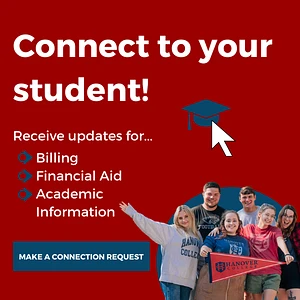By CampusESP | Estimated Reading Time: 3 minutes
The college journey is not just about acquiring academic knowledge, it's also a crucial period for students’ personal and professional development. Beyond textbooks and exams, college demands a set of soft skills that empower students to navigate the complexities of campus life and lay the foundation for future success. Here are 15 essential soft skills that will not only help your student be college-ready but will also pave the way for a successful academic and personal experience throughout college.
Effective Communication: The ability to articulate thoughts clearly, listen actively, and express ideas coherently is fundamental. Effective communication facilitates collaboration in group projects, enhances networking skills, and fosters positive relationships with peers and professors.
Time Management: Balancing coursework, extracurricular activities, and personal life requires effective time management. Your student should learn to prioritize tasks, set realistic goals, and create a well-structured schedule to maximize productivity.
Adaptability: College life is dynamic, and flexibility is key. Your student should cultivate the ability to adapt to new environments, diverse perspectives, and unexpected challenges. Being adaptable ensures your student can thrive in ever-changing academic and social landscapes.
Critical Thinking: The ability to analyze information, solve problems, and think critically is crucial for success in college and beyond. Develop a habit of questioning, evaluating evidence, and approaching challenges with a solution-oriented mindset.
Collaboration and Teamwork: Many college assignments and projects involve collaboration. Honing teamwork skills, including effective communication, compromise, and contribution, will enhance your student’s overall college experience and prepare them for collaborative work environments post-graduation.
Emotional Intelligence: Understanding and managing emotions, as well as empathizing with others, is a valuable skill. Emotional intelligence contributes to effective leadership, conflict resolution, and building strong interpersonal relationships.
Resilience: College life comes with its share of setbacks and challenges. Building resilience will enable your to bounce back from disappointments, learn from failures, and persist in the face of adversity.
Leadership Skills: Whether leading a student organization or taking charge of a group project, developing leadership skills is integral to personal growth. Effective leaders inspire, motivate, and bring out the best in themselves and those around them.
Problem-Solving: The ability to identify problems, analyze root causes, and implement effective solutions is a valuable asset. Develop a proactive problem-solving mindset to navigate both academic and real-world challenges.
Networking: Building a professional network starts in college. Encourage your student to attend events, engage with professors and peers, and seek mentorship opportunities. Networking fosters valuable connections that can open doors to internships, job opportunities, and lifelong professional relationships.
Interpersonal Skills: Strong interpersonal skills, including the ability to collaborate, negotiate, and resolve conflicts, contribute to a positive social and academic environment. These skills are essential for building meaningful connections with classmates and faculty.
Self-Motivation: College often requires self-directed learning. Your student should cultivate self-motivation and utilize a variety of resources to help them stay focused on their academic goals, complete assignments independently, and take initiative in their personal and professional development.
Cultural Competence: Embracing diversity and striving to understand different cultures and perspectives is a key aspect of the college experience. Cultural competence enhances their ability to work with diverse groups of people, fostering a richer and more inclusive experience through college and into their professional life.
Financial Literacy: Understanding budgeting, managing expenses, and making informed financial decisions are critical skills for college students. Encourage your student to develop financial literacy to navigate student loans, budget effectively, and plan for the future.
Digital Literacy: In the digital age, proficiency with technology is paramount. Your student should work to enhance their digital literacy skills, including proficiency in online research, using productivity tools, and maintaining a professional online presence.
As your student embarks on their college journey, they should remember that success extends beyond academic achievements. Equipping themselves with these 15 soft skills will not only make them college-ready but will also lay the groundwork for a successful and fulfilling life beyond the classroom. Encourage your student to embrace the opportunities for personal growth, seek out diverse experiences, and cultivate these skills to thrive in the dynamic world of higher education and beyond.




